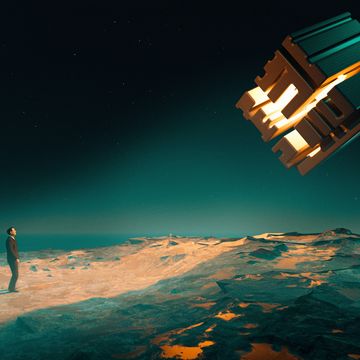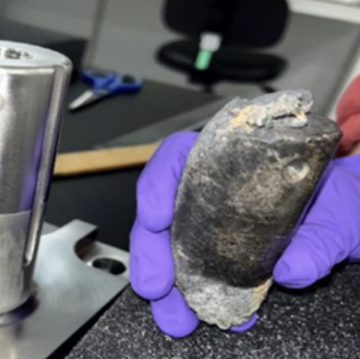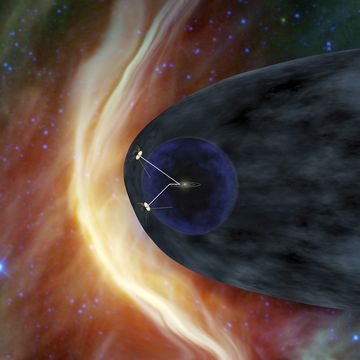How do Americans feel about the sci-fi technologies promising to invade their lives? This week, pollsters from the Pew Research Center released the results of a survey of 1001 adults, revealing which technologies we're afraid and which ones we think will never come to pass.
The fears of a dystopian future are telling. When asked whether a new tech breakthrough would be a change for the better or worse, most respondents picked "worse" for implants that pump information into our brains, drones in U.S. airspace, and even robot caregivers for the elderly. About half of us are ready for driverless cars, but about three-quarters said they would not use a brain implant to improve their memory or performance, or eat lab-grown beef. Not surprisingly, the idea of trusting robots to take care of us is a little easier to digest than digesting a hamburger made by science. The body is (more) sacrosanct.
Most interesting to us, though, are Americans' predictions for the next half-century. (PopMech made our own 110 predictions for the next 110 years, with the help of a scientific advisory board, a couple of years ago.) Lab-grown organs? Definitely going to happen. But people who answered the poll were much more dubious about big-ticket future projects such as space colonies and controlling the weather.
What caught my eye is that 39 percent of people think scientists will have solved teleportation by 2064, while only 33 percent say humans will have long-term space colonies. Here, optimism is getting the better of us. Yes, scientists have already figured out a way to "teleport" quantum information. But an entire human, a la Star Trek? As physicist Dave Goldberg told us last year, "Quantum teleportation is not only a possibility—it's a reality, at least for single photon states, and there's no reason it couldn't be scaled up somewhat. I'm skeptical that it'll ever be practical to teleport people, but there's no fundamental reason why we couldn't do so. It's just mind-bendingly complex." You and I are made of 50 trillion cells, each of which is far more complex than a photon.
That's not to say space colonization is easy. I'm reminded of what astronaut Chris Hadfield said in an interview with PopMech last fall: It takes years of study to understand and overcome the challenges of keeping humans alive at each of the stepping stones out into the unknown—orbit, the moon, Mars, and beyond. But thanks to years of work with the space shuttle and the International Space Station, scientists and engineers have already begun to crack some of the big questions of what it takes to build an off-planet outpost and keep humans alive there.
Both teleportation and space colonies are a matter of scaling up. But which one is more likely to come true depends on whether you believe a colossal infrastructure project or a mind-blowing technological breakthrough is more likely to come to fruition. I lean toward humans having space colonies because building them really is within our grasp. Doing it is a matter of money, time, and accepting the inherent crazy risks. Teleportation doesn't require such a huge commitment to a build, but the chasm between transporting one photon and transporting an entire person is so, so vast.
However, given the government's wavering commitment to big-ticket NASA projects over the last decade, I wouldn't blame you if you'd rather put your money on a rogue genius building a transporter than a country or private space company building a colony in space. So what's your pick?

Andrew's from Nebraska. His work has also appeared in Discover, The Awl, Scientific American, Mental Floss, Playboy, and elsewhere. He lives in Brooklyn with two cats and a snake.














